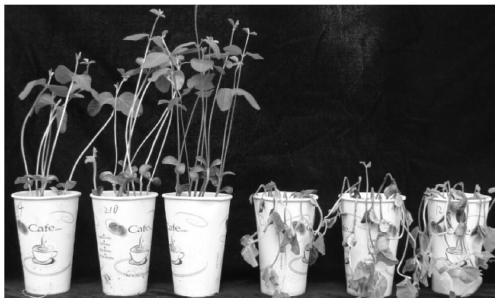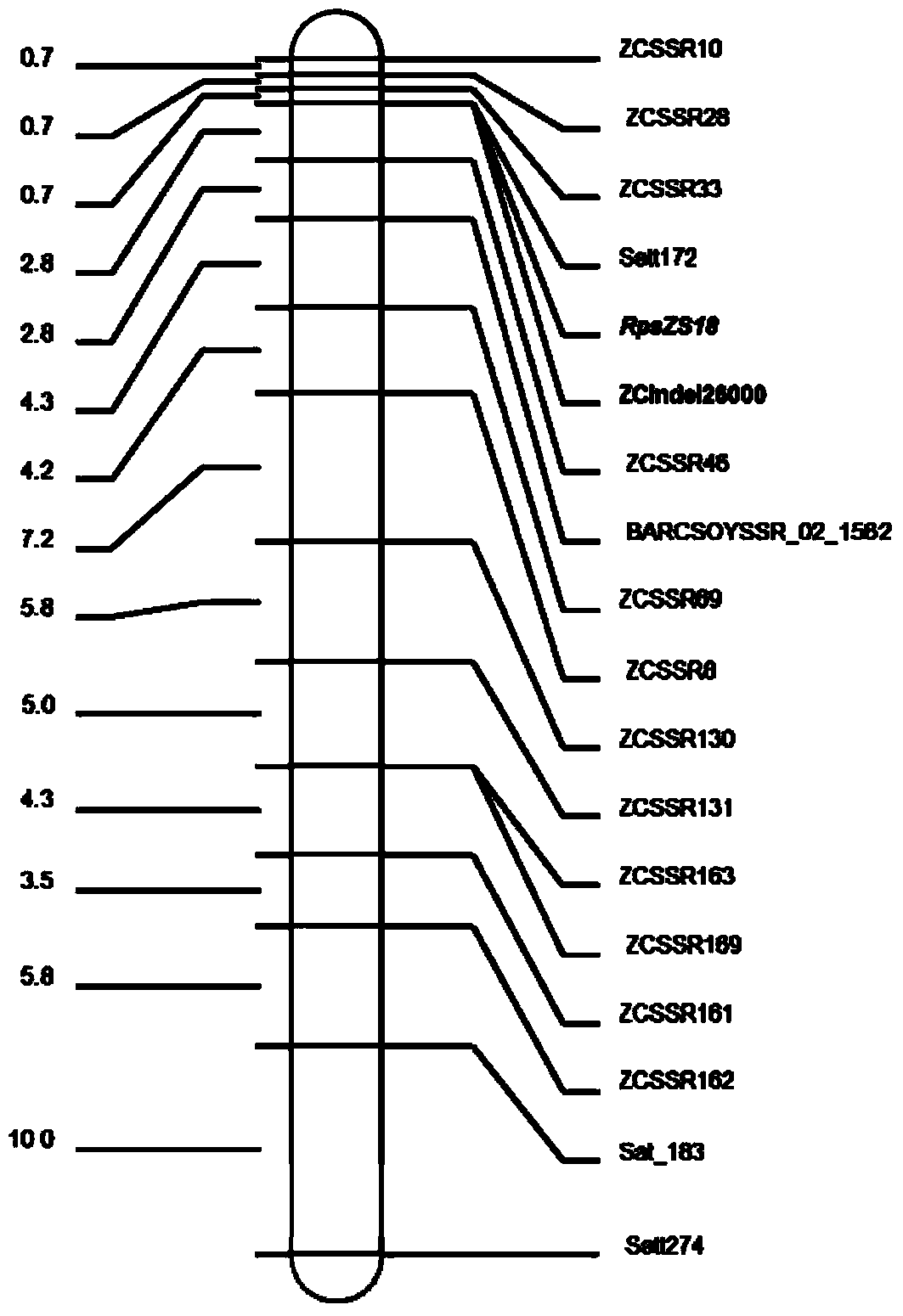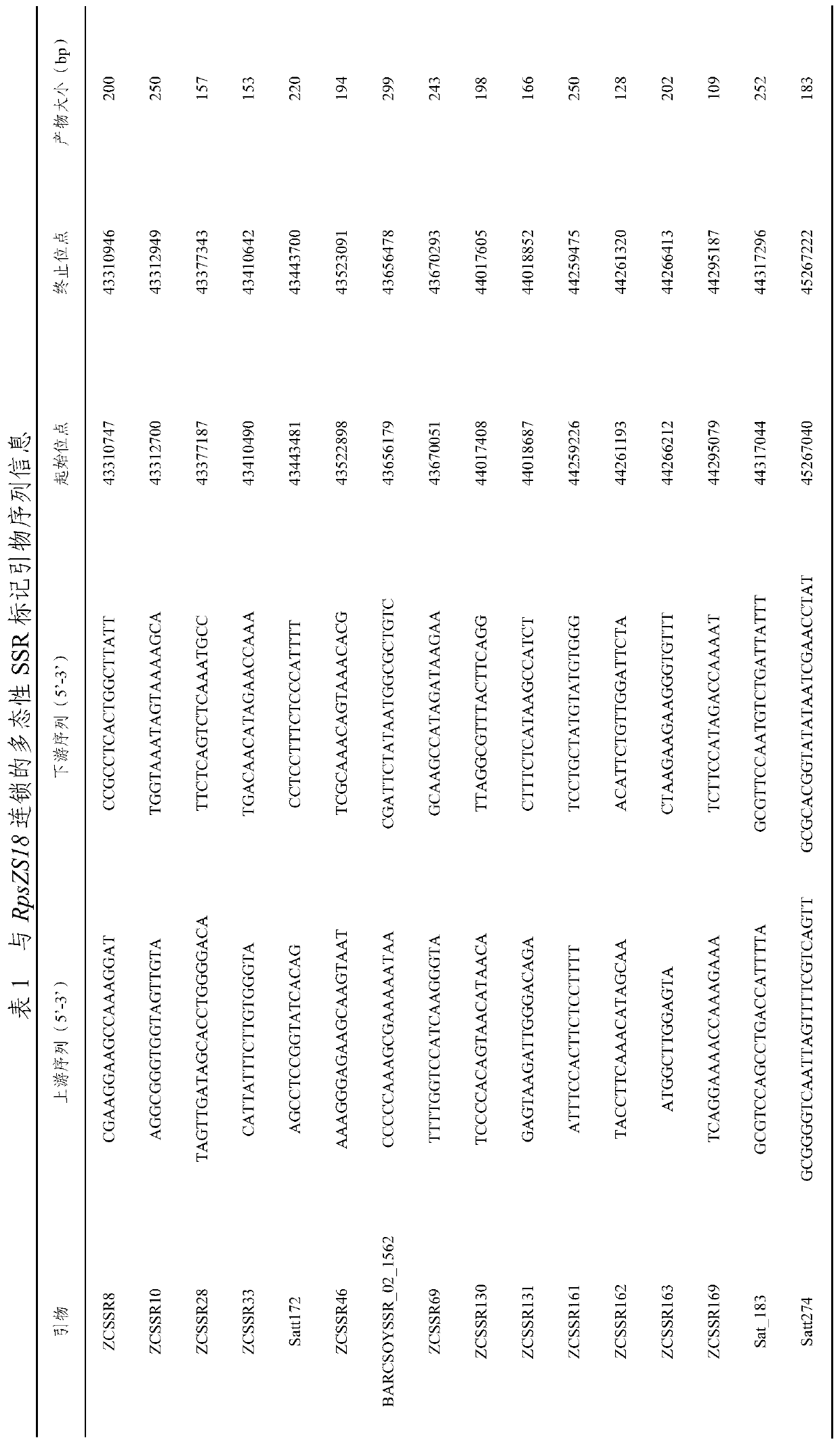Molecular marker co-segregated with soybean blight resistance gene rpszs18 and its application
A molecular marker and anti-epidemic technology, which is applied in the field of agricultural biotechnology engineering and crop disease-resistant genetic breeding, can solve problems such as the complex structure of Phytophthora soybean population, achieve the effects of improving breeding efficiency, reducing yield loss, and overcoming the long cycle
- Summary
- Abstract
- Description
- Claims
- Application Information
AI Technical Summary
Problems solved by technology
Method used
Image
Examples
Embodiment 1
[0042] Example 1 The acquisition of the candidate gene of soybean blight resistance gene RpsZS18 and its co-segregated molecular marker ZCindel246000
[0043] 1. Genetic analysis of resistance in precocious 18
[0044] F 1 Generation, F 1 F 2 Generation, F 2 75 F 3 Genetic analysis of resistance in pedigrees, identification of disease resistance genes and mapping of populations. Using the hypocotyl wound inoculation method, 20-25 plants identified in each family were analyzed for their resistance to Phytophthora sojae strain PsUSAR2. At 24°C after inoculation, under the condition of 100% humidity, keep moist for 48 hours, then transfer to the greenhouse for cultivation, and carry out disease investigation after 4 days ( figure 1 ). Referring to the evaluation criteria of Gordon et al. (2006), it is stipulated that families with a plant mortality rate of less than 20% are pure and resistant families, those with a mortality rate greater than 80% are pure and susceptible f...
PUM
 Login to View More
Login to View More Abstract
Description
Claims
Application Information
 Login to View More
Login to View More - R&D
- Intellectual Property
- Life Sciences
- Materials
- Tech Scout
- Unparalleled Data Quality
- Higher Quality Content
- 60% Fewer Hallucinations
Browse by: Latest US Patents, China's latest patents, Technical Efficacy Thesaurus, Application Domain, Technology Topic, Popular Technical Reports.
© 2025 PatSnap. All rights reserved.Legal|Privacy policy|Modern Slavery Act Transparency Statement|Sitemap|About US| Contact US: help@patsnap.com



